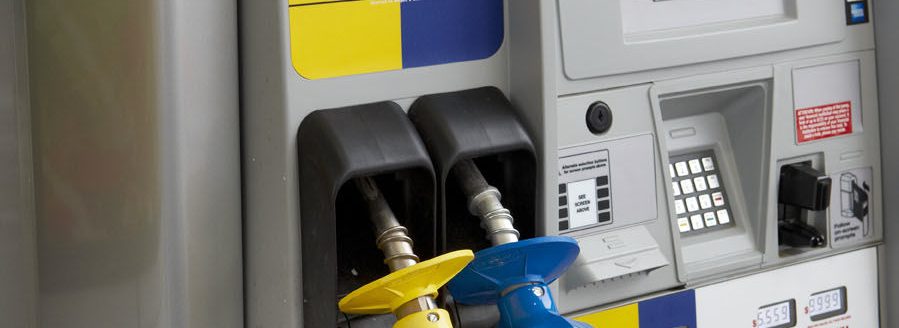Biden’s $2 trillion infrastructure plan gets mixed reviews
President Joe Biden on March 31 released his $2 trillion American Jobs Plan and it has been met with mixed reviews largely on partisan lines.
Congress is expected to debate the plan this summer.
The plan includes about $115 billion for traditional highways, roads and bridges. The plan includes investing $20 billion for smaller, off-system bridges, many in rural areas, to help address 12,000 of the 30,000 off-system bridges listed in poor condition. Another $17 billion would be set for inland waterways, coastal ports, land ports of entry and ferries. The plan also calls for investment in climate and energy infrastructure.
The National Corn Growers Association is urging lawmakers to account for ethanol’s low-carbon benefits, already available today, in any future infrastructure package.
National Farmers Union President Rob Larew called the plan “encouraging” and highlighted the need for significant investments in rural infrastructure.
“Those neighborhoods contain a larger portion of crumbling roads, bridges and dams and also lack internet connectivity, affordable housing and medical resources, all of which is holding residents back and contributing to rural flight,” Larew said, adding he hoped the initiative would “strengthen rural communities, build resilience to climate change and hasten economic recovery.”
The plan relies on raising the corporate tax rate from 21% to 28% and all corporate tax changes would generate $2 trillion over the next 15 years.
U.S. Sen. Roger Marshall, R-KS, a member of the Senate Agriculture Committee, noted that less than 6% goes to roads and bridges. He believes the package also raises taxes and places burdensome regulations on the American people.
“With only 6% of this package going towards roads and bridges, this is hardly an infrastructure package. The Democrats should call this the ‘Grab your Wallet Bill’ or the ‘Raise your Taxes Bill,” Marshall said. “I’m for an infrastructure plan that invests in future generations, but we have to figure out how to pay for it. The president has once again produced a partisan proposal loaded with Green New Deal type pet projects and with no way to pay for it. This bill is just another ploy to spend your money, raise your taxes, and increase regulations. All Kansans should be concerned as this is a recipe to kill the economy at a time when our nation is still recovering from COVID.”
Colorado Sen. Michael Bennet, a Democrat and member of the Senate Agriculture Committee, welcomed the announcement.
“If we want to build an economy that delivers opportunity for all, fights climate change and competes with China, we have to invest in 21st century American infrastructure. President Biden’s plan includes priorities that I repeatedly hear about in Colorado—from investing in broadband to supporting rural water infrastructure.”
The plan includes Bennet’s outdoor restorations bill that he says will create jobs by supporting locally led forest health and watershed restoration projects. “Just like our roads and bridges, our natural infrastructure is vital to our economy in Colorado and across the West.”
Secretary of Agriculture Tom Vilsack said the Biden plan focuses on a strong economy for working people by restoring the safety and integrity of the nation’s infrastructure from broadband to water to power and electricity and to renew American’s leadership in science, research and development to provide tools to make and create United States products to be sold around the world.
“The American Jobs Plan invests in clean, safe drinking water in our rural communities with specific emphasis on underserved and Tribal areas. The plan promises to close the broadband gap in rural America for millions of Americans, which is so critical for health care, education and employment in our digital age,” he said.
The investment in manufacturing will allow an expansion of bio-based products and renewable fuel production, giving U.S. growers and producers another market for their goods and supporting good-paying jobs, Vilsack said. He also noted the Biden plan provides support for people managing forests, grasslands and watersheds from the community level “ensuring what’s good for the environment is good for jobs while protecting our forests from burning up in increasing catastrophic wildfires.”
The plan includes $100 billion broadband infrastructure, including 100% high-speed broadband coverage in rural America and to make it affordable for all Americans. Funds will prioritize broadband networks owned, operated by, or affiliated with local governments, non-profit and rural cooperatives.
He is calling for $14 billion investment in the electric vehicle market and that includes incentives for buyers, using a public and private effort to build a national network of 500,000 EV chargers by 2030 and replacement of 50,000 diesel transit vehicles and use electricity based vehicles of at least 20% of the yellow school bus fleet.
The plan includes $5 billion for a new Rural Partnership Program to help rural regions, including Tribal Nations, to build on assets and realize their vision for inclusive community and economic development, the plan states. The program will empower rural regions by supporting locally led planning and capacity building efforts and providing flexible funding to meet critical needs.
The plan includes a $1 billion investment for agricultural resources management and climate-smart technologies that will open new markets for farmers. The plan includes $10 billion for grants and loans for small rural communities. Another $2 billion would be invested in the U.S. Department of Agriculture’s Rural Development housing programs to assist low-income rural borrowers and renters secure safe, decent homes.
The plan funds a $10 billion Community Revitilzation Fund to support community-led redevelopment projects in rural and urban areas that spark new economic activity.
The plan funds 10 new regional innovation hubs across the country that will leverage private investment to fuel technology development and new regional business opportunities and foster urban-rural connections. Additional monies will be earmarked for to support investment in research and development programs.
Dave Bergmeier can be reached at 620-227-1822 or [email protected].


